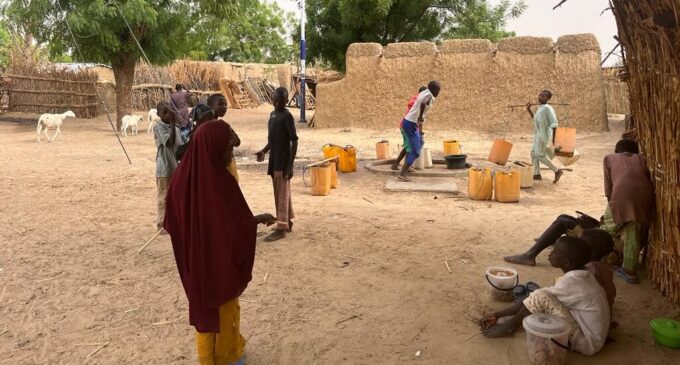UNICEF: 100 million children vulnerable to climate change impacts in Nigeria

The United Nations Children’s Fund (UNICEF) says 100 million children are vulnerable to the impacts of climate change in Nigeria.
Farah Mahmud, UNICEF chief of field office, Kano, spoke at the 2023 World Children’s Day celebration in the state on Monday.
Mahmud said the event, themed ‘Impact of climate change on lives of children’, aims to focus on child rights amid climate crisis, adding that “it is a platform for children to voice out their concerns and experiences”.
He said UNICEF has developed an action plan for 2023 to 2027 to address the vulnerability of children and fight climate change.
Mahmud said the agency will integrate climate change in all its interventions across sectors and ensure effective implementation of the projects to build resilience.
According to him, UNICEF estimates that one billion children are at “extremely high” risk of the effects of climate crisis globally.
“Nigeria is the second most vulnerable country worldwide in terms of children’s exposure to climate change,” he said.
“About 100 million children are confronted with harsh realities of rising temperature.
“The action plan is the designing of a conscious action plan and step organised to address certain issues of climate change in Nigeria.
“We make sure we integrate climate change in whatever project we implement as UNICEF, to ensure resilience to climate change.
“Nigerian children are also confronted with flooding, drought and severe storms. UNICEF will work with the government and stakeholders to address the problem.”
Nasiru Garo, Kano commissioner for environment, had previously said the state government is sensitising children on the dangers of climate change.
Garo said the government is working to prioritise the conservation of biodiversity and restoration of degraded lands in the state.
He said efforts have been made to fight desert encroachment, control environmental pollution, flooding and soil erosion.
“They are also sensitised to discourage their peers against open defecation, and ensure construction of public toilets at strategic locations to achieve open defecation free (ODF) status,” he said.

















There are no comments at the moment, do you want to add one?
Write a comment